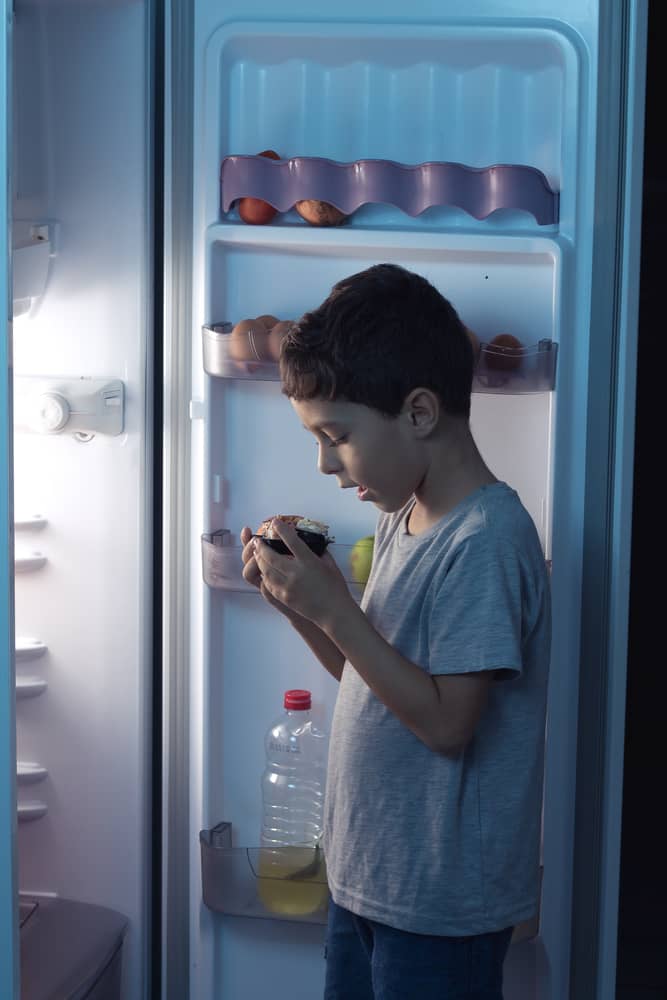Eating, Diet, & Nutrition for GER & GERD in Children
How can changes in eating habits improve GER or GERD symptoms in children?
For children who have gastroesophageal reflux (GER) or gastroesophageal reflux disease (GERD) symptoms at night or while lying down, doctors may suggest they avoid eating for a few hours before they lie down or go to bed.
Being overweight or having obesity can increase the chance that a child will have GER or GERD. If you are concerned about your child's weight, talk with your child’s doctor. The doctor can check your child's overall health and growth and tell you if weight management may be helpful. Don't put your child on a weight-loss diet unless your child’s doctor tells you to.
 Doctors may suggest children with GERD avoid eating just before they go to bed.
Doctors may suggest children with GERD avoid eating just before they go to bed.What should a child with GERD avoid eating or drinking?
Some children who have GERD find that certain foods or drinks trigger symptoms or make symptoms worse. You or your child should talk with your child’s doctor about any foods or drinks that seem to increase GERD symptoms. The doctor may recommend reducing or avoiding certain foods or drinks to see if symptoms improve.
This content is provided as a service of the National Institute of Diabetes and Digestive and Kidney Diseases
(NIDDK), part of the National Institutes of Health. NIDDK translates and disseminates research findings to increase knowledge and understanding about health and disease among patients, health professionals, and the public. Content produced by NIDDK is carefully reviewed by NIDDK scientists and other experts.

